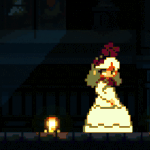GET SOCIAL: #4 TAKING CRITIQUE
How to deal with feedback and critique. Unity approves!
 Kylaila
Kylaila- 07/24/2015 08:26 AM
- 5111 views
Get Social! #4
Today: Taking Critique
Social interactions are a wonderful little thing,
but something many people struggle with.
The internet is a place seemingly full of socially awkward and shy people trying their best.
And while it is more comfortable online, it is easier to fall into traps.
Conversation still follows the same principles as in real life,
so here is a little help along the way!

rmn utilizes a constant flow of feedback from players and developers alike, trying to better their games and attempting to craft the best possible game they can do.
However, often inexperienced developers lash out strongly against reviews.
As it is a completely normal and neutral event for anyone else, this often spirals into a mountain of insults, when the actual intent was to help the creator improve and polish his game and his gam mak skills!
I believe all developers here can at least relate to the feelings of the butthurt phenomen - even if they cannot accept the way it is handled sometimes. So I urge everyone to keep calm even if the creator is dismissing their points. Give them some time and see what happens later.
And for any new or old creator out there, here are a few tipps and reminders to respond in a better manner!
You need to understand and prepare yourself in advance. The moment you put games or any content up for people to see, play and view as content - you will get critized.
Your work will be taken apart, broken into tiny little pieces, analyzed, and then put back held together only by duct tape.
Even if you are proud of your work, even if you put a great deal of effort and dedication into it - this is not what people will see first.
You are special for the vast majority of people in the sense that you actually completed a game. But you are not special among all the game creators that have gathered here and put up hundreds and thousands of games.
1. Cool Down
You cannot prevent yourself from getting angry and hurt when people cannot see your game the way you do. If they cannot see the brilliance of it all or seemingly ignored your efforts.
Your goal is to make a shiny game. Anyone destroying that imagine is - at first glance - obstructing your goal! So you will naturally get angry.
What you can do is let that anger out elsewhere!
Go for a jog, play some games, vent your anger to good friends, people who support you. But for the love of all poros, leave this site for it. It is the wrong place to do it and will only attract comments and reactions fueling your anger more.
2. Realize Feedback Is Good
After you calmed down, remind yourself of how important it is to see both the good and the bad sides of what you are doing. How important it is to see how someone who was not familiar with you or your project experienced your game.
If someone is writing you in detail about their experience, they care about your project! Especially reviews are an effort to help both players choose and developers polish up their games.
They criticize because they can see your game being better. As great as your vision. They see that it has a lot of room to go there.
Critique of your game is not critique of you as a person! You may have put your heart and thought into your game, but the others are only trying to see the game as a game. As something you made, not as part of you.
Even with a shitty game you will still be a great person, and you need to remind yourself of this simple fact.
3. Think Their Points Through
Try imagining you discovered all of the issues raised yourself - how would that be? What would you do if you noticed all of this yourself? What would you try to fix?
Try to get a deeper insight on this, and then decide what to do with it. These issues were raised by someone else, by someone else's experience. You will have to decide what is worth considering, taking over, or in which direction you will need to go in the future.
You do not have to agree with all of the points, but you will have to discover and consider them to mend problems and build on your strengths!
Not everything you do is bad, far from it. You are doing the best you can, so stay clear of taking it personal. Experience is key!
4. Reply, Dig Deeper
With all the thought you have done for yourself, you can now easily reply in favor of your game! Your goal is to make a shiny game, remember?
If there are points unclear, ask about them in detail. If you have possible solutions or ideas, present them and ask for that second opinion - can they see it work in your game?
Get as much insight as you can, it will help you understand how your ideas come across and make for an open dialogue about how your games are going to be better and better.
Now you will be the cool guy who can take critique like a boss!
And will get more and better feedback as a result, because all the nice people who retreat at the first signs of insults and danger are staying with you instead.
Today: Taking Critique
Social interactions are a wonderful little thing,
but something many people struggle with.
The internet is a place seemingly full of socially awkward and shy people trying their best.
And while it is more comfortable online, it is easier to fall into traps.
Conversation still follows the same principles as in real life,
so here is a little help along the way!

rmn utilizes a constant flow of feedback from players and developers alike, trying to better their games and attempting to craft the best possible game they can do.
However, often inexperienced developers lash out strongly against reviews.
As it is a completely normal and neutral event for anyone else, this often spirals into a mountain of insults, when the actual intent was to help the creator improve and polish his game and his gam mak skills!
I believe all developers here can at least relate to the feelings of the butthurt phenomen - even if they cannot accept the way it is handled sometimes. So I urge everyone to keep calm even if the creator is dismissing their points. Give them some time and see what happens later.
And for any new or old creator out there, here are a few tipps and reminders to respond in a better manner!
You need to understand and prepare yourself in advance. The moment you put games or any content up for people to see, play and view as content - you will get critized.
Your work will be taken apart, broken into tiny little pieces, analyzed, and then put back held together only by duct tape.
Even if you are proud of your work, even if you put a great deal of effort and dedication into it - this is not what people will see first.
You are special for the vast majority of people in the sense that you actually completed a game. But you are not special among all the game creators that have gathered here and put up hundreds and thousands of games.
1. Cool Down
You cannot prevent yourself from getting angry and hurt when people cannot see your game the way you do. If they cannot see the brilliance of it all or seemingly ignored your efforts.
Your goal is to make a shiny game. Anyone destroying that imagine is - at first glance - obstructing your goal! So you will naturally get angry.
What you can do is let that anger out elsewhere!
Go for a jog, play some games, vent your anger to good friends, people who support you. But for the love of all poros, leave this site for it. It is the wrong place to do it and will only attract comments and reactions fueling your anger more.
2. Realize Feedback Is Good
After you calmed down, remind yourself of how important it is to see both the good and the bad sides of what you are doing. How important it is to see how someone who was not familiar with you or your project experienced your game.
If someone is writing you in detail about their experience, they care about your project! Especially reviews are an effort to help both players choose and developers polish up their games.
They criticize because they can see your game being better. As great as your vision. They see that it has a lot of room to go there.
Critique of your game is not critique of you as a person! You may have put your heart and thought into your game, but the others are only trying to see the game as a game. As something you made, not as part of you.
Even with a shitty game you will still be a great person, and you need to remind yourself of this simple fact.
3. Think Their Points Through
Try imagining you discovered all of the issues raised yourself - how would that be? What would you do if you noticed all of this yourself? What would you try to fix?
Try to get a deeper insight on this, and then decide what to do with it. These issues were raised by someone else, by someone else's experience. You will have to decide what is worth considering, taking over, or in which direction you will need to go in the future.
You do not have to agree with all of the points, but you will have to discover and consider them to mend problems and build on your strengths!
Not everything you do is bad, far from it. You are doing the best you can, so stay clear of taking it personal. Experience is key!
4. Reply, Dig Deeper
With all the thought you have done for yourself, you can now easily reply in favor of your game! Your goal is to make a shiny game, remember?
If there are points unclear, ask about them in detail. If you have possible solutions or ideas, present them and ask for that second opinion - can they see it work in your game?
Get as much insight as you can, it will help you understand how your ideas come across and make for an open dialogue about how your games are going to be better and better.
Now you will be the cool guy who can take critique like a boss!
And will get more and better feedback as a result, because all the nice people who retreat at the first signs of insults and danger are staying with you instead.
Posts 

Pages:
1
I like this article Kylaila. You're right. We cannot keep ourselves from getting angry over negative critique, or reviews. It is a good idea to try to calm down first after something like that happens. I will admit I am not perfect, and have gotten really mad, and upset in the past. However now I do try to direct my anger towards other stuff, to let it out. Like jogging, or playing a game for example like you said. I hope others can read this article, and understand it as well.
Thank you!
I hope so as well. Getting angry is perfectly healthy, but it needs to be used for your progress, not to obstruct it.
@Porkate: She did, but I already had a silly picture to add, so I just left it to keep the writing format. (cool that you read it!)
I think giving feedback is in the sense easier that there are many review-guidelines already available, but would you like to see an article on it as well? (aimed more at real life)
I hope so as well. Getting angry is perfectly healthy, but it needs to be used for your progress, not to obstruct it.
@Porkate: She did, but I already had a silly picture to add, so I just left it to keep the writing format. (cool that you read it!)
I think giving feedback is in the sense easier that there are many review-guidelines already available, but would you like to see an article on it as well? (aimed more at real life)
Taking criticism is a pretty big learning experience in itself even if you have a couple of guidelines to keep in mind. I dunno, I feel like certain instances leave me in pretty productive mindset, others not so much. I don't feel angry though, just unsure all of a sudden. It gets a little complicated when you think you're making something for other people but really you're making it for yourself.
A good way to get used to criticism is to probably just work with someone who will challenge you every step of the way. That's a hard person to find dynamically speaking but I find it's a good way to keep the discussion of "is this game good" going from the very start as opposed to 1 year after development.
A good way to get used to criticism is to probably just work with someone who will challenge you every step of the way. That's a hard person to find dynamically speaking but I find it's a good way to keep the discussion of "is this game good" going from the very start as opposed to 1 year after development.
Pages:
1


















